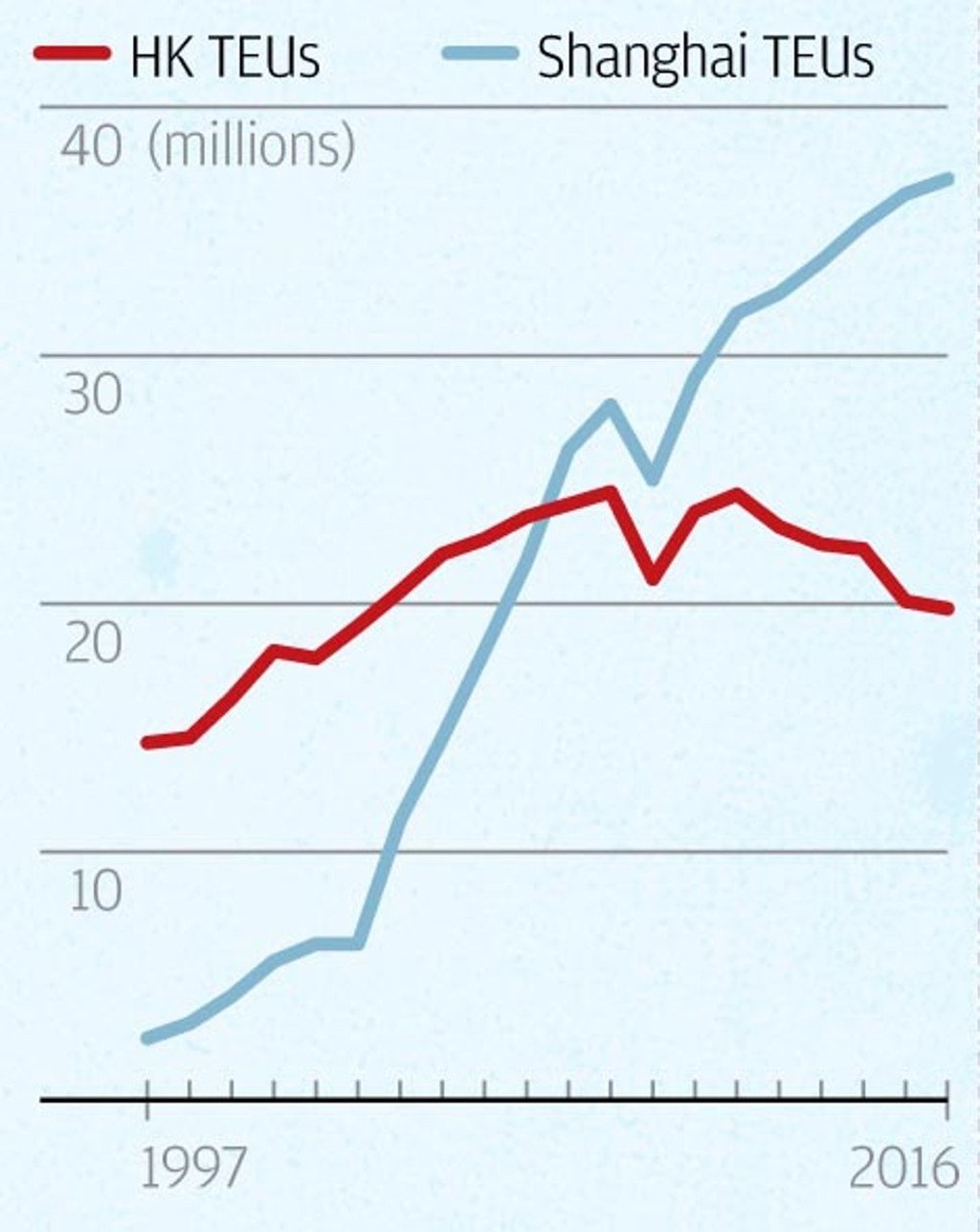Winning role required in economic numbers game
The value of Hong Kong to China goes beyond statistics because they fail to explain its true worth, analysts say

In just 20 years since their reunion, the change in the relative economic sizes of Hong Kong and the mainland has been so dramatic that many have questioned the value of Asia’s most dynamic financial and business hub to the motherland. Thanks to phenomenal mainland growth, Hong Kong’s share of Mainland China’s gross domestic product has plunged, from 16 per cent in 1997 to about 3 per cent now.
Last year, our per capita income reached US$43,368, up nearly 82 per cent from US$23,838 per cent in 1997, while that of the mainland was US$8,260, a leap of more than 750 per cent from US$972, during the same period. In other words, the comparative wealth of Hongkongers and their mainland cousins was drastically reduced. The change underlines the declining role of the city and its lesser importance to mainland economic development.
Tim Condon, chief economist and head of research with ING Asia, says the pendulum has swung back and forth in relations with the mainland since the handover.
However Steve Tsang, director of the SOAS China Institute at the University of London, went further, saying Hong Kong was indispensable to China in the 1990s but not any more, with the size of the mainland economy and its standing in the world now fundamentally different.
Before the handover, the city played a crucial role in the reform and openness policy of late paramount leader, Deng Xiaoping.

